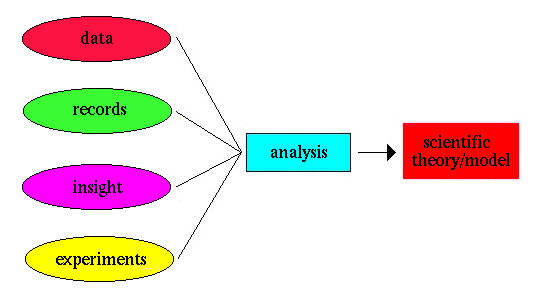Defining Evidence-Based Decision Making
Evidence-based management entails making decisions and creating organizational practices that are informed by analyzing the best available data. The practice of evidence-based decision making in management (often abbreviated as EBMgt) evolved from medicine and emphasizes a rational, objective, and empirical approach to addressing business issues. It is analogous to the scientific method which uses experiments and data collection to advance knowledge.

Scientific theories
Scientific theories are the result of analysis applied to data, records, insights, and experiments. Evidence is gathered, is analyzed, and from there a theory is developed.
The EBMgt Collaborative—sponsored by a number of universities and foundations throughout the U.S., U.K., and Canada—is an organization devoted to expanding the practice of EBMgt. The EBMgt Collaborative's mission statement includes a comprehensive definition of the practice:
Evidence-Based Management (EBMgt) enhances the overall quality of organizational decisions and practices through deliberative use of relevant and best available scientific evidence. EBMgt combines conscientious, judicious use of best evidence with individual expertise; ethics; valid, reliable business and organizational facts; and consideration of impact on stakeholders .
Pros and Cons of EBMgt
Evidence-based protocols have been adopted in non-scientific fields such as business, education, and law enforcement, demonstrating usefulness of this approach. Because the evidence approach examines outcomes, it supports the careful consideration of the relationship between cause and effect. Managers can have more confidence in their choices when they can point to data that supports the likelihood of that choice leading to desired results.
The adoption of EBMgt also creates advantages in how an organization operates. The formal processes of EBMgt require managers and other decision makers to be disciplined and organized in their decision-making process. The degree of structure in collecting and analyzing data helps create a working environment that favors facts over intuition or guess-work.
Critics of EBMgt argue that evidence may not always be complete or appropriately measured; they also argue that analysis is not always neutral or without bias. It is not always possible to agree on what counts as credible evidence; even if data on a certain factor is desirable, it may not exist or be readily available. The idea of objectivity is obscured because data is subject to interpretation, and those with different levels of experience or backgrounds can reach different conclusions about the implication of a given set of findings. Critics also argue that evidence-based approaches do not take ethics into consideration.
Though it has its limitations, EBMgt can be an effective approach to informing the decisions of managers. By acquiring sufficient data that support conclusions, EBMgt can help decision makers distinguish between alternatives and choose the most promising option. It can also help influence others to support a decision once it has been made.